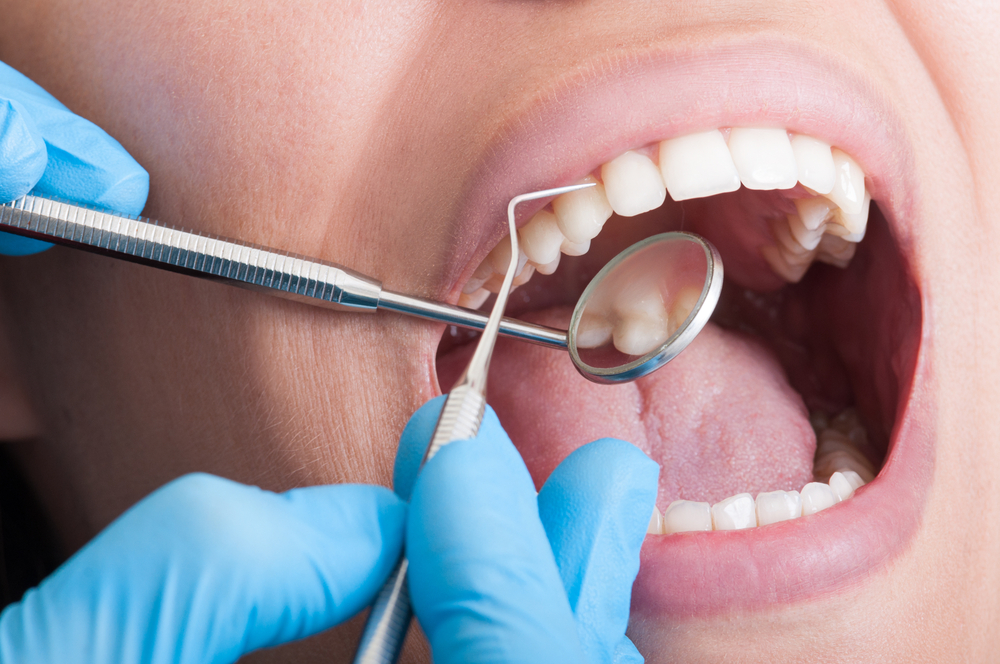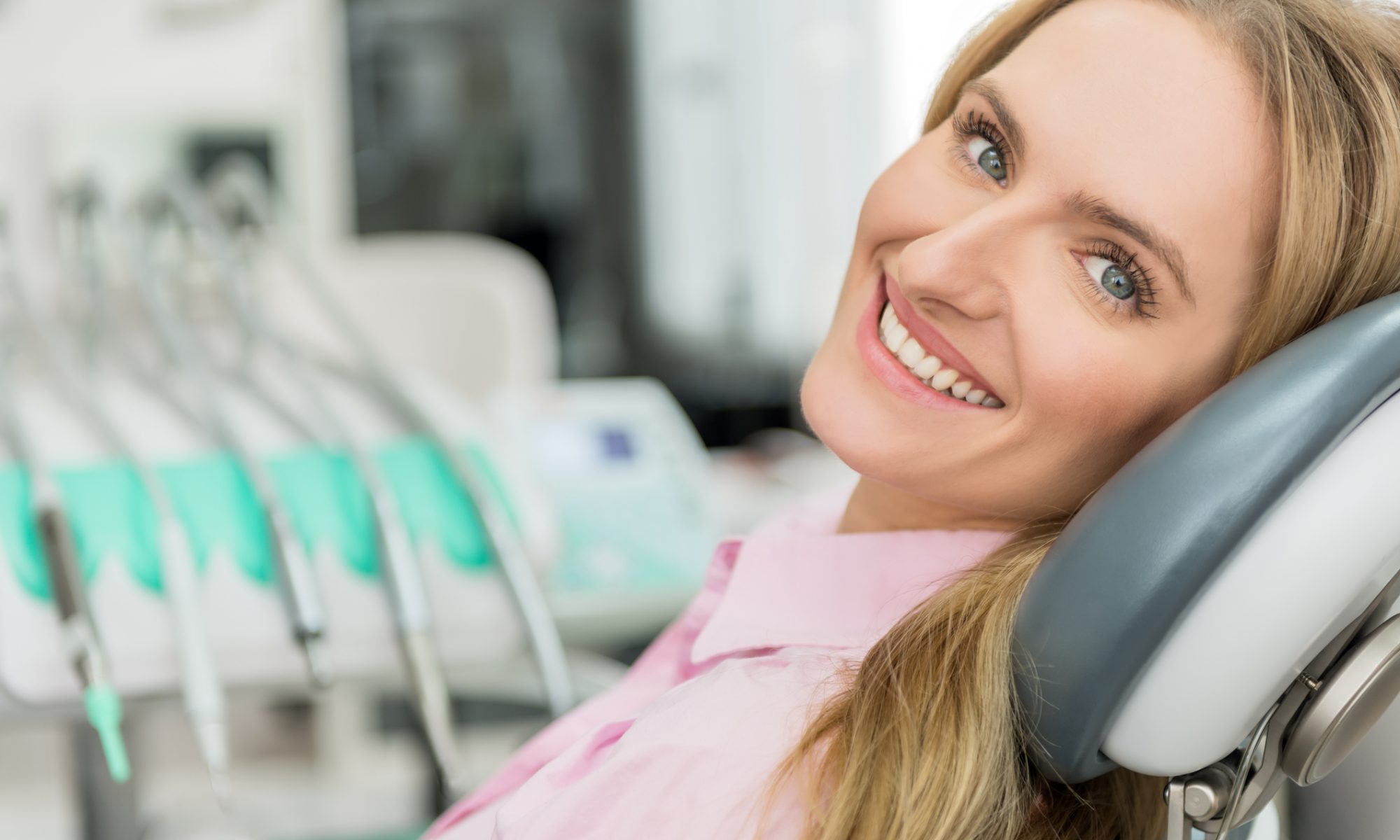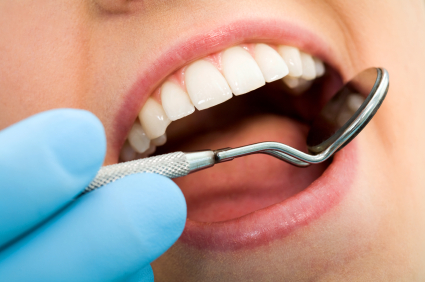Tag: dental cleanings bakersfield
Types of Dental Cleanings, Bakersfield CA
Scheduled professional teeth cleaning is a key component of your preventative dental care to maintain optimal dental health and minimize the risk of gum disease and tooth decay. The American Dental Association recommends that dental cleanings be performed every six months by a dental practitioner. However, some people may require more frequent cleanings depending on their risk factors.
Your dentist may recommend one of the following types of dental cleanings after examining your teeth and gums:
1. Prophylaxis (prophy)
This is commonly referred to as “teeth cleaning”, and involves the removal of accumulated plaque from your teeth, which cannot be removed by regular brushing at home. The process also includes tooth polishing, and should be done every 8 to 16 weeks. Generally, a good candidate for prophylaxis should have firm, pink gums with no bleeding or gum pockets over 3mm.
2. Full Mouth Debridement
If your teeth are not professionally cleaned for more than a year, your teeth may have heavy plaque and tartar (calculus) build-up. In such a case, regular prophylaxis may not be sufficient. So your dental professional may recommend full mouth debridement using hand tools and a micro-ultrasonic scaler to remove the plaque and calculus from your teeth and gums, and restore the health of your mouth.
3. Scaling and Root Planing
Commonly referred to as “deep cleaning”, this procedure is usually recommended for patients who exhibit signs of periodontal disease, such as deeper gum pockets (over 3mm), inflammation and bleeding gums, accumulation of plaque and tartar below the gumline, and/or loss of bone tissue supporting the teeth.
4. Periodontal Maintenance
Following treatment for periodontal disease through scaling and root planing or periodontal surgery, your dental professional may recommend this specialized cleaning every 8 – 12 weeks as part of your periodontal treatment follow up to reduce the risk of gum disease recurrence.
Schedule Your Dental Cleaning Today
The right type of dental cleaning in [CITY] will be determined by your dental professional depending on the clinical condition of your teeth and gums, as well as your risk and history of periodontal disease and treatment. Please visit your dentist to discuss your cleaning needs today.
Cost of Dental Exam & Teeth Cleaning in Bakersfield CA
Routine dental checkups and professional cleaning form a vital part of preventative oral care. These preventive visits may also include additional services, such as X-rays, fluoride application, cancer examination, and so on depending on your personal dental care needs and your last oral checkup. Combined with a proper at-home oral care routine, these visits help you maintain optimal dental health, reducing the risk of tooth loss and expensive dental procedures.
But how much can you expect to pay for these routine dental visits?
The national average costs of popular dental services such as exams and cleaning vary from one region to the other, and from dentist to dentist.
If you have a dental insurance plan, your cost of preventive care may be considerably lower, or nothing more than your monthly premium. Since dental insurance plans typically emphasise preventative care, most of them cover two annual dental checkups. That said, you should consult your dental insurance company to determine the various dental services covered by your policy, as well as the extent of the coverage.
Final note
Dental insurance can provide savings when receiving preventive care services such as routine exams, professional cleanings, sealants for children, topical fluoride, and x-rays (usually one set per year). The frequency and benefits for each service depend on the type of plan you have, so you should always read the plan details carefully. Even if your employer does not offer dental insurance as a perk, you can purchase an individual or family plan to enjoy reduced cost of most preventive and restorative dental treatments.
Dental Cleanings: Regular (Prophy) vs Deep Cleaning | Bakersfield CA
There are several types of dental cleanings that may help to remove accumulated plaque and tartar in your mouth, and improve your overall oral health. The American Dental Association recommends that prophylaxis cleanings be performed every six months by your general dentist as a part of your preventative dental care. Prophylaxis is also referred to as “teeth cleaning”, and involves the removal of accumulated plaque from the surface of your teeth above the gumline, as well as tooth polishing.
Prophylaxis is performed using fine hand instruments, as well as an ultrasonic scaler and a polishing cup and paste if there are no signs of gum disease. Generally, a good candidate for prophylaxis should have firm, pink gums with no bleeding, and the gum pockets should be within the healthy range of 1 – 3mm. Though the ADA recommends prophy cleaning every six months, people at high risk of gum disease and other oral issues may require more frequent cleaning at 8 – 16 week intervals.
Will Prophylaxis Cleaning Work for Me?
There are some cases where regular prophylaxis cleaning may not be enough to improve your oral health. Your dental professional will examine your teeth and gums and then determine the best type of alternative cleaning for your individual needs. The other types of dental cleaning include:
- Full Mouth Debridement – it is recommended for people whose teeth have not been professionally cleaned for more than a year, resulting in heavy plaque and tartar (calculus) build-up. This procedure is typically performed before an oral examination and diagnosis to ensure good visibility of the actual condition of your mouth
- Scaling and root planing – commonly referred to as “deep cleaning”, this procedure is recommended for patients who exhibit signs of periodontal disease, such as deeper gum pockets (over 3mm), inflammation and bleeding gums, accumulation of plaque and tartar below the gumline, and/or loss of bone tissue supporting the teeth.
- Periodontal maintenance – following treatment for periodontal disease, your dental professional may recommend this specialized cleaning every 8 – 12 weeks as part of your ongoing treatment for chronic periodontal disease to reduce the risk of adverse symptoms.
Please visit your dentist to discuss your dental cleaning in Bakersfield CA today.
Dental Exam & Cleanings in Bakersfield CA
Dental professionals agree that you should schedule a dental assessment at least once a year. This is an important examination that aids in the early diagnosis of potential oral problems, such as chips and cracks, cavities, gum disease, and even oral cancer. Besides evaluating your dental health, dentists also perform professional teeth cleaning to remove plaque and calculus or tartar, which are responsible for most common oral problems.
A dental cleaning is typically performed by a dental hygienist. But before the cleaning commences, they will first physically check your teeth, gums, tongue, and the entire mouth for any concerns using a small mirror. If there are any noticeable problems, the dental hygienist will consult the dentist to determine whether it’s safe to proceed with the cleaning.
A typical professional teeth cleaning procedure involves the following five steps:
Step 1: Plaque and Tartar Removal
Your dental professional uses a scaler to remove plaque and calculus from the surface of each tooth, targeting the area above the gums, between the teeth, and around the gum line. The duration of this step depends on how long it has been since your last cleaning.
Step 2: Polishing
When all the plaque and tartar has been removed from your teeth, the hygienist will use a special brush with a soft rubber cup. This not only removes any surface stains, but also makes your tooth surface smooth and shiny to make it harder for plaque to form.
Step 3: Expert Flossing
Professional flossing helps to thoroughly clean the area between your teeth to remove any leftover plaque and toothpaste from the previous steps.
Step 4: Rinsing
The dental hygienist uses a mouth rinse containing liquid fluoride to remove any debris and clean your mouth.
Step 5: Fluoride Treatment
As the final step, your dental hygienist may apply flavored fluoride by putting it in flexible trays that are then placed over your teeth for 30 seconds. This helps to strengthen your teeth and enhance the protection against plaque and calculus.
Keep in mind that this is the standard dental cleaning process. If you have gum disease, your dental hygienist may recommend deep scaling to remove plaque from your tooth roots as well.
To learn more about what to expect from a routine dental exam & cleaning in Bakersfield CA, please contact your dental office today.
Teeth Cleaning Near Me, Bakersfield CA
There are both beneficial and harmful bacteria in your mouth. The beneficial bacteria aids in digestion, while the harmful kind is associated with gum disease, dental caries, bad breath, and many other oral issues. Through daily brushing and flossing at home, you can maintain a low level of harmful bacteria in your mouth to such a level that it doesn’t adversely affect your oral health in the short-term. Unfortunately, there are areas in your mouth that are hard to clean with a toothbrush, where bacteria may build up in your mouth and cause harm.
Professional cleaning helps to prevent this by targeting every corner of your mouth to remove built-up plaque and calculus. This offers many benefits, including:
- Reduced tooth wear and cavities from acids in the mouth – plaque, the biofilm formed by bacteria colonies living in your mouth, is responsible for producing acid that can erode your teeth, cause cavities, and damage your gums.
- Maintaining your bright smile – when plaque is not removed properly, it may calcify and mineralize into a hard substance (tartar) that not only changes the aesthetic appearance of your teeth, but also attracts more harmful bacteria. Tartar or calculus can only be removed during dental cleanings using specialized tools.
- Reduced risk of gingivitis – bacteria in your mouth can accumulate to a point where it becomes active and destructive, resulting in gum infection. The first stage of gum infection is known as gingivitis, and is characterized by gum inflammation, swelling, and reddening. Due to sensitive gums, you may also notice some blood on your toothbrush or when rinsing your mouth after brushing. Fortunately, gingivitis can be successfully treated with professional dental cleaning and an improved at-home oral care routine.
- Prevention of periodontitis – If there are no interventions, gingivitis can advance to a more serious, chronic, and irreversible case of gum disease known as periodontitis or periodontal disease. It affects the foundation of your teeth – the bone tissue connecting your teeth to the jaw. If not treated promptly, periodontitis can cause severe bone loss that loosens your teeth with some even falling out. Though it’s irreversible, dental professionals can help you manage the symptoms and improve your oral health.
Schedule Dental Cleaning Today Professional dental cleaning can help you enjoy a healthy mouth and smile. Please visit your dentist for a thorough examination of your mouth and to determine the best type of dental cleaning in Bakersfield CA to improve your oral health.
Dental Cleanings: Regular (Prophy) vs Deep Cleaning | Bakersfield CA
There are several types of dental cleanings that may help to remove accumulated plaque and tartar in your mouth, and improve your overall oral health. The American Dental Association recommends that prophylaxis cleanings be performed every six months by your general dentist as a part of your preventative dental care. Prophylaxis is also referred to as “teeth cleaning”, and involves the removal of accumulated plaque from the surface of your teeth above the gumline, as well as tooth polishing.
Prophylaxis is performed using fine hand instruments, as well as an ultrasonic scaler and a polishing cup and paste if there are no signs of gum disease. Generally, a good candidate for prophylaxis should have firm, pink gums with no bleeding, and the gum pockets should be within the healthy range of 1 – 3mm. Though the ADA recommends prophy cleaning every six months, people at high risk of gum disease and other oral issues may require more frequent cleaning at 8 – 16 week intervals.
Will Prophylaxis Cleaning Work for Me?
There are some cases where regular prophylaxis cleaning may not be enough to improve your oral health. Your dental professional will examine your teeth and gums and then determine the best type of alternative cleaning for your individual needs. The other types of dental cleaning include:
- Full Mouth Debridement – it is recommended for people whose teeth have not been professionally cleaned for more than a year, resulting in heavy plaque and tartar (calculus) build-up. This procedure is typically performed before an oral examination and diagnosis to ensure good visibility of the actual condition of your mouth
- Scaling and root planing – commonly referred to as “deep cleaning”, this procedure is recommended for patients who exhibit signs of periodontal disease, such as deeper gum pockets (over 3mm), inflammation and bleeding gums, accumulation of plaque and tartar below the gumline, and/or loss of bone tissue supporting the teeth.
- Periodontal maintenance – following treatment for periodontal disease, your dental professional may recommend this specialized cleaning every 8 – 12 weeks as part of your ongoing treatment for chronic periodontal disease to reduce the risk of adverse symptoms.
Please visit your dentist in Bakersfield CA to discuss your cleaning needs today.
Why Should I Prioritize My Routine Dental Exam? | Bakersfield CA
Tooth decay, gum disease, bad breath, and other oral problems are caused by the accumulation of bacteria-harboring plaque and tartar. Regular brushing and flossing are not enough to remove all the plaque hiding in hard to reach areas. Fortunately, a routine dental exam and cleaning can help to get rid of the disease-causing bacteria and in the process, prevent most issues from arising in the first place, or to stop them in their earliest stages before they become severe and expensive to treat.
Teeth cleanings are usually done together with comprehensive dental exams. In most cases, dentists are able to detect potential problems before you’re able to see or feel them. With a regular preventative dental appointment for professional cleaning and routine dental exam, you can successfully stave off gum disease and decay, as well as to detect the early stages of oral health problems for timely intervention before they become severe, painful, uncomfortable, and expensive to treat.
Some of the things you can expect from any routine dental exam include:
- Oral Examination – the dentist examines your teeth/gums/mouth for existing cavities, worn dentition, damaged fillings or other restorations, gum disease, and other problems
- Discuss Your Dental Goals – After examining your mouth, the dentist will recommend the necessary treatments to address any urgent problems depending on the health of your mouth. In addition, the dentist will ask you a few questions about your goals or expectations in terms of improving the function or aesthetic of your smile.
- Treatment Planning – Based on your goals, your dental health, and the results of your examination, the dentist will come up with an appropriate treatment plan that addresses your unique dental needs and discuss it with you. In many cases, there are multiple ways to address any specific issue (fillings or crowns; bridgework or partial denture), so it’s important that you ask questions for clarification and to make an informed decision towards achieving your dental goals.
Schedule Your Appointment Today
Your natural teeth should last a lifetime, but only if you take good care of them. This requires a good at-home dental care routine and regular dental exams and professional cleanings. Call your dentist in Bakersfield CA today to get back on track with your oral health.
What to Expect From Dental Exam and Cleanings in Bakersfield CA
A typical cleaning and consultation dental appointment comprises a visual inspection of your teeth, gums, and oral cavity. If it has been more than one year since your previous dental visit, then X-rays may also be necessary for a more comprehensive view of your teeth.
Dental cleanings and examinations are two different procedures that are typically performed in a single appointment:
During a dental cleaning:
- Your dentist or hygienist will remove accumulated plaque and tartar using special tools, such as a metal scaler that physically scrapes off the built-up bacteria, or an ultrasonic scaler that uses vibration.
- The dentist will squirt water into your mouth to rinse of the plaque. A suction tool will also be applied in your mouth to suck the water out immediately
- Your teeth will be polished using a gritty toothpaste, and then flossed
During the dental exam, the dentist will:
- Visually inspect your mouth using a mirror and small instruments, including a probe to test the surface of each tooth
- Examine teeth, checking for signs of decay, sensitivity, grinding, or excess tooth wear
- Evaluate your gums for signs of swelling, bleeding, or irritation. Your gum pockets will also be measured to check for gum recession
- Evaluate your bite and temporomandibular joint (TMJ), checking for proper alignments and shift in your bite (underbite, overbite, or crooked bite)
- Check the soft tissues in your mouth, including the texture and size of your tongue, tonsils and throat for signs of infection, and salivary glands for proper saliva secretion
- Complete an oral cancer screening to check for signs of infection around your cheeks, tongue, palate, neck, head, and lymph nodes
- Take dental X-rays for diagnostic information about non-visible parts of your mouth, including the underlying bone structure
You can then discuss with your dentist or hygienist about the findings of your dental exam and any problems you may have with your teeth or gums, while advising you on better flossing or brushing technique You can also ask any questions concerning your oral health. Finally, your dentist will provide treatment recommendations, tell you how to improve your at-home oral care routine, and advise you on the best time to schedule your next routine visit or appointment for necessary treatment.
Dental Exam and Cleanings FAQ | Bakersfield CA
What’s the worst that can happen if I skip my dental appointments?
Dental cleanings are intended to keep your gums and teeth clean and healthy, which will, in turn, help you avoid paying for costly dental procedures in the future. If you don’t get professional cleanings, bacteria in your mouth will buildup as calculus, releasing acids that inflame the gums, erode tooth enamel, cause tooth decay, stain your teeth, cause bad breath, and even lead to tooth loss. While all these problems can be treated, it would be an expensive and time-consuming process compared to simply preventing them with a 45-minute dental appointment. Moreover, dental exams help to detect the early stages of problems, including chips, gum disease, cavities, and even oral cancer, so you can start interventions early to prevent them from getting worse or even reverse them.
What does the ADA (American Dental Association) recommend regarding routine dental care?
Routine dental care comprises preventive things that you should do to ensure optimal health for your teeth and gums. The ADA recommends that you:
- Brush your teeth daily at least twice using an ADA-approved fluoride toothpaste
- Clean between your teeth every day using floss or an interdental cleaner
- Get a new toothbrush every 3-4 months or sooner if you suffer an oral illness
- Maintain a well-balanced diet and reduce the intake of sugary items and drinks, and snacks between meals
- Visit your dentist regularly for oral exams and professional cleanings
What questions are the most common during routine dental care?
Dental consultations provide a good opportunity for you to learn more about caring for your teeth and gums. You may consider asking:
- Which toothpaste, toothbrush, floss, or other product should I use for my teeth?
- Based on your examination and my dental/medical history, what is my ideal interval for cleanings?
- What dental diseases am I prone to if any? Why? What can I do to reduce this risk?








